I am making a simple BST and, in the add_to_bst() function, it is throwing an error in the first line when referencing the object's value.
CODE
typedef struct node {
int value;
struct node* leftChild;
struct node* rightChild;
} BSTNode;
BSTNode *new_BSTNode(int val) {
BSTNode *this = (BSTNode *) malloc(sizeof(BSTNode));
this->value = val;
this->leftChild = (BSTNode * ) malloc(sizeof(BSTNode));
this->rightChild = (BSTNode * ) malloc(sizeof(BSTNode));
this->leftChild = NULL;
this->rightChild = NULL;
return this;
}
typedef struct bst {
BSTNode * root;
} BST;
BST *new_BST(int root_val) {
BST *this = (BST *) malloc(sizeof(BST));
this->root = (BST * ) malloc(sizeof(BSTNode));
this->root->value = root_val;
// this->root->value = (int *) malloc(sizeof(int));
return this;
}
int node_get(BSTNode *n, int i) {
if (n == NULL) return -1;
if (i == n-> value) return 1;
if (i > n-> value) return node_get(n->rightChild, i);
else return node_get(n->leftChild, i);
}
int bst_get(BST *bst, int i) {
return node_get(bst->root, i);
}
void add_to_bst_node(int i, BSTNode *to) {
int n = to->value; // <--- ERR
printf("\nBST VAL: %d", n);
if (i > n) {
if (to->rightChild == NULL)
to->rightChild = new_BSTNode(i);
else
add_to_bst_node(i, to->rightChild);
} else {
if (to->leftChild == NULL)
to->leftChild = new_BSTNode(i);
else
add_to_bst_node(i, to->leftChild);
}
}
void add_to_bst(BST *tree, int i) {
if (tree->root != NULL) {
add_to_bst_node(i, tree->root);
} else {
tree->root = new_BSTNode(i);
}
}
int main() {
BST *bst = new_BST(10);
add_to_bst(bst, 10);
}
RUN MSG:
0x7fa64fc00690
0x7fa64fc00640
First Val: 10
Process finished with exit code 11


